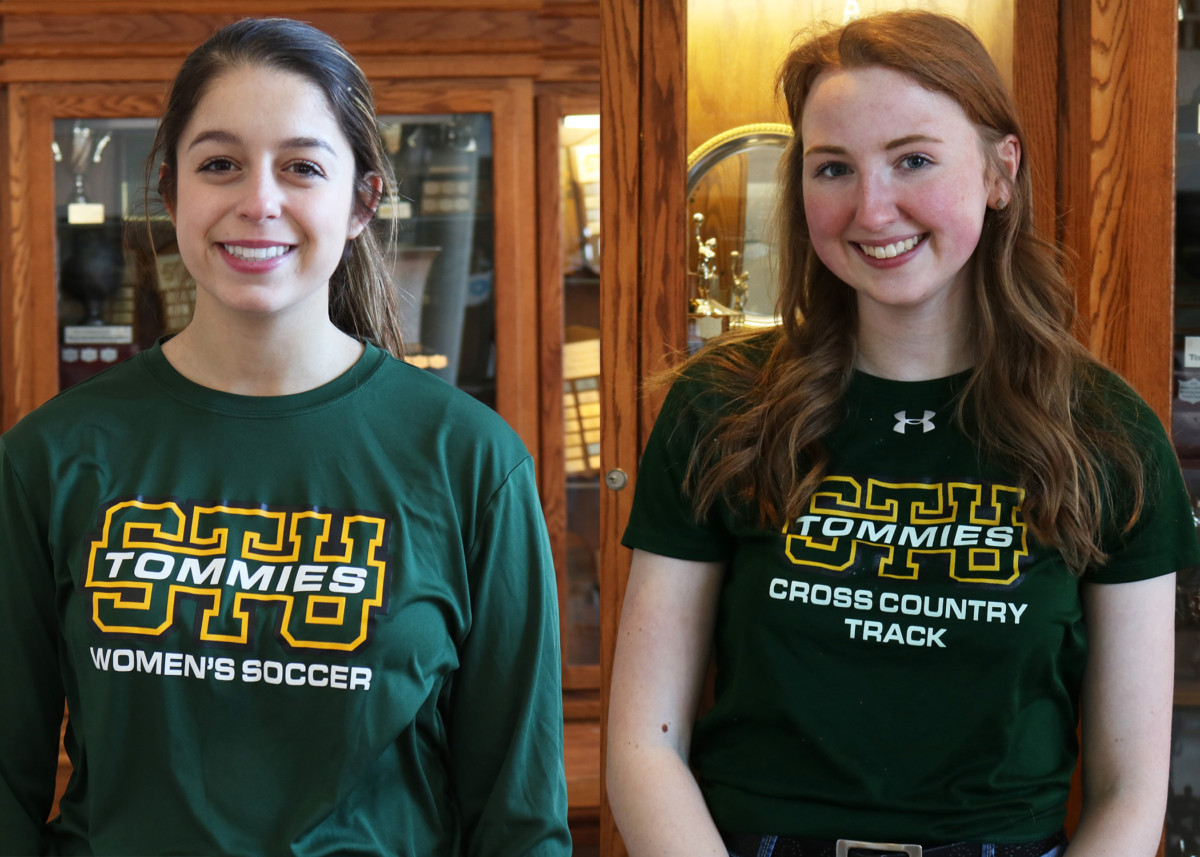You’ll usually find St. Thomas University students Melanie Laplante and Grace Baker with their noses in books between classes or late at night in the library.
“You have to balance your priorities, and I think that soccer and academics have shown me what I need to do. I think soccer will give me an upper hand when it comes time to graduate school,” Laplante said.
As well as being regulars on the dean’s list at STU, Laplante and Baker have been recognized by the CCAA and USports for their academic achievements. Laplante, from Moncton, is a member of the women’s soccer team and Baker, from Liscob, N.S., runs for the STU track and field team. Both are in their third year at STU and became friends in their first year. The two are now roommates.
They say fitting in study time around a practice schedule, class, meals and sleeping is a balancing act.
“Balancing your time is definitely a challenge, sometimes you might have a midterm the next day, and you’d like to study for it that night, but you have to plan around practice, so you’ll have to study between classes,” Laplante said.
The community aspect of being with a team has also given Laplante the opportunity to volunteer for organizations, such as the Harvest Jazz & Blues Festival. Baker volunteers on campus, whether it be with her team or on her own. Baker has worked at the Help Desk, helped with Welcome Week, been a peer mentor and more. Still, she acknowledges sometimes, you can overdo it.
“I wanted to give myself more time in my schedule, even if it’s just this semester. I didn’t want to spread myself too thin.”
Having to prioritize an assignment over a practice can cause a lot of stress, but STU also has resources for students to access like the Writing Centre and tutoring sessions.
“I think it is helpful for those people who don’t know how to study or how to manage their time,” Laplante said.
“I’ve used the Writing Centre just to have another set of eyes look over my work.”
Baker has developed her own strategies and must-haves that work for her.
“I would die without my planner. It’s my life line. I think laying out what your week’s like has helped me so much.”
Laplante prefers studying alone.
“As much as I like studying with other people, I have trouble when there is noise around me. Finding a place in the library that I can do my work with no distractions keeps me from pushing work off.”
Laplante pointed out that in second and third year she found she had to decline invitations to social events more often, because of the increasing difficulty and workload of her courses.
Baker said it “kind of sucks” to say no to nights of fun with friends because she has homework.
They both had to sacrifice visiting their families on breaks. Baker and Laplante talked about how it was beneficial to stay and be productive.
They agree mental health can be an issue for student athletes. It’s stressful, but teammates are always there to support you.
“Sometimes when I do get stressed or anxious, soccer is a good outlet to use to relieve myself from all the stress,” Laplante said.
“It’s a time where I can concentrate on soccer instead of a test or an assignment.”
Both are hoping to honour in their respective fields, psychology for Laplante and criminology for Baker. They think their athletic career will help them have success in the future.
“I think you gain a lot from being an athlete just in terms of ownership, accountability, responsibility and leadership,” Baker said.
“Being able to balance allows you to learn to not spread yourself too thin, which will help for employment opportunities in the future.”

